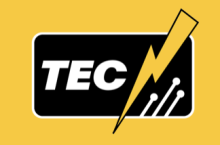
Update (6/25/20):
The board of the New Hampshire Electric Cooperative voted unanimously at yesterday's meeting to create a separate entity to pursue broadband funding and development in the state for its 84,000 member-owners, committing $1 million in funding to the effort.
In the press release, President and CEO Steve Camareno remarked: “meeting our members’ needs is NHEC’s only focus, and the ability to access fast, reliable internet service is a critical need, now more than ever. In pursuing this initiative, we remain mindful that we must balance that need with our members’ reliance on NHEC as their electric service provider.”
The response by the board shows the success of local organizing efforts around the issue; voting was up 33% at the annual board meeting last week, where adding broadband to cooperative's charter was a primary concern. The move positions NEHC well to pursue money from the state's available CARES funds as well as bid in the Rural Digital Opportunity Fund auction this fall.
Original story:
Efforts to add broadband to the New Hampshire Electric Cooperative’s (NEHC) charter fell just 2% short of the 2/3 supermajority it needed to pass last week, but supporters remain hopeful. Over seven thousand voters turned out for the annual Board of Directors election, which included the broadband line item on the ballot. The measure fell short by 183 votes. A successful vote would have allowed the co-op to build a broadband network and offer Internet access to its members.
Advocates are still optimistic, and efforts by groups like NH Broadband are ongoing. It was the first attempt to add broadband Internet to the NEHC’s charter. Further, two new members of the 10-person board are on the record in support, with one of them taking the place of an outgoing board member who opposed it. Broadband remained a central topic at this past Monday’s meeting where the board discussed different options, and another meeting is scheduled for today to discuss potential sources from state or federal funds. NEHC, which serves about 84,000 members, is likewise exploring options with external partners.
New Hampshire’s governor recently announced that $50 million of its CARES Act money would go towards expanding broadband access, and providers in the state is set to have access to up to $67 million from the federal Rural Digital Opportunity Fund auction this fall.
For more on broadband expansion efforts in the state, listen to Christopher talk with Hanover Town Manager Julia Griffin about their attempts to invest in fiber optic network in Community Broadband Bits Episode 179 below.






